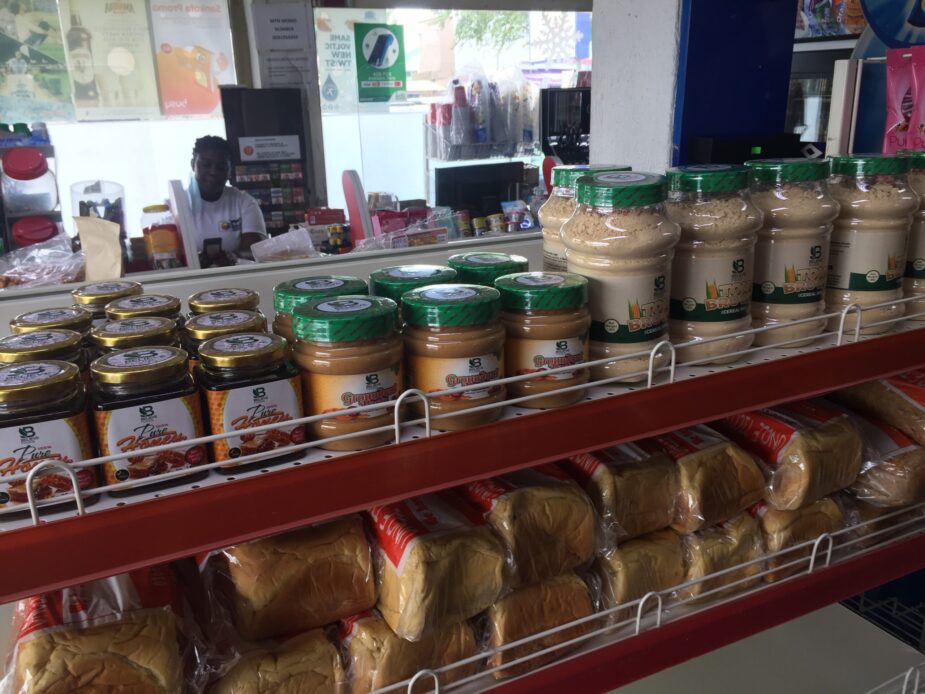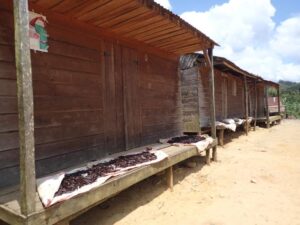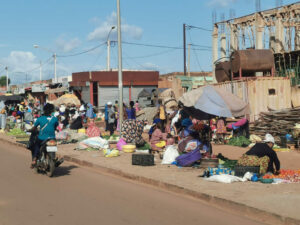
Export-ready: Helping Ghana’s small firms to trade across borders
Ghana’s small enterprises felt the sting of the pandemic’s global economic downturn as much as any business.
But this year kicked off with a lifeline. As of January, the African Continental Free Trade Agreementc ame into force, knocking down barriers to the free flow of goods and services across the continent.
The move puts the world’s largest free-trade area at their fingertips. Some established businesses are ready to do cross-border trade and take a big slice of this vast market. But others don’t yet have what it takes to seize the opportunity – and that’s where a research project could offer vital support.
Nicolas Depetris Chauvin of the University of Applied Sciences Western Switzerland, who leads this work, says that for Ghana’s small businesses to become export-ready, they need to scale up production and, crucially, adapt their products to foreign markets.
“What the Ghanaian company sells in the Ghanaian market may not be what the consumer in Egypt, South Africa or Kenya wants to buy,” says Depetris. “They want to [export], but the way to sell is very different.”
It’s a common mistake for small- and medium-size enterprises (SMEs) setting out to export to foreign markets: they tend to replicate products sold at home, without tailoring them to the characteristics and tastes of consumers abroad.
This is a crucial time to get it right, says Charles Odoom from the African Centre for Economic Transformation (ACET) think tank, a partner in the project. “The market is open now. We’ve gone through COVID. So it’s a moment where you prepare yourself, as economies recover – by the time there’s huge demand, companies would be ready.”
“It’s a moment where you prepare yourself, as economies recover”
Charles Odoom, Africa Centre for Economic Transformation
Knowledge that adds value
It’s not easy for a small company in a low-income country to access the right expertise, apply it to transform its products and become more competitive in foreign markets. “The idea is to reduce the entry costs [into the international market], by providing all this information,” says Depetris.
His team has put together a training programme drawing on results from previous projects implemented in Argentina and Colombia. This includes work that found a causal link between firms’ successful business results and access to knowledge, including how to rework business practices to satisfy the demands of the receiving market.
The project –Trade and labour market outcomes in developing countries– focuses on firms that produce and trade goods beyond those already sold on international markets, such as minerals, cocoa beans or timber. “We are looking for new markets where Ghana could have [a] competitive advantage and became an exporter, but it hasn’t because of lack of knowledge,” says Depetris.

Picture 1: Companies representing a wide range of products have signed up for the project. Credit: Nana Nketiah Asare, Believe Foods
So far, among the companies that signed up to take part in the research are producers of horticultural products, prepared foods, vegetable oil, but also leather and wood products, cosmetics, textiles and garments. Home Foods Ghana, for example, is a company that has been selling processed foods such as seasoning and cooking oils for more than two decades to domestic wholesalers, retailers and distributors.
These are specialised products exported at low volumes, or not at all. They “come from such a diverse background in terms of product, even in location, and we feel that it’s a representative sample of the firms available in Ghana,” says Michael.
Gains beyond profit
The benefits of upgrading the value chain go beyond company profits.
If Ghana’s small and medium specialised firms – which in 2016 represented 85% of businesses and contributed about 70% to the country’s GDP – successfully export their products and sell to a wider customer base, the local economy will capture a larger size of the market. Retaining more value closer to home also translates in employment opportunities and higher wages.
“Companies that export, pay more,” explains Depetris. “Because you need to have workers with better skills, because you need to produce better quality.”
Free trade ultimately boosts exporting economies. Africa’s free-trade agreement, whose secretariat is based in Ghana’s capital, Accra, promises to provide long-term growth and lift 30 million people out of extreme poverty across Africa.
“We’re looking at new markets where Ghana could have a competitive advantage”
Nicolas Depetris Chauvin, University of Applied Sciences Western Switzerland
Now that the agreement provides an environment conducive for trade, effectively simplifying customs procedures and cutting tariffs by 90%, Ghanaian enterprises need this crucial expertise to allow them to participate in the higher leagues on the winning side of globalisation. The project – funded by the R4D programme, a joint initiative by the Swiss Agency for Development and Cooperation and the Swiss National Science Foundation – aims to provide that missing link.
Twenty good practices
“Some firms in Ghana will not even understand the full size of the market they’re incorporating,” says who manages the contact and training of firms directly. “Then it’s very difficult to quantify the value of opportunity.”
To fix the disparity in experience and access to knowledge, the team developed a series of twenty good practices that firms in developing economies can implement to establish a consistent export business. These sit across seven areas: strategy, market identification and segmentation, product design and adaptation, production, communication, distribution, administration.
Decision-makers from participating firms, such as managers or CEOs, are provided with hands-on, tailored training in these areas. Under the guidance of consultants and the ACET team they will create a business growth plan, undertake market research to position themselves competitively, and put in place mechanisms to ensure quality and consistency in production, distribution, and marketing.

Picture 2: Participants shared their progress in one of the workshops. Credit: GEPA Head Office
ACET, which provides the consultancy services and technical assistance, is working with the Ghana Export Promotion Authority to implement the project. It has so far onboarded 180 Ghanaian firms from a diverse range of sectors to take part in the training.
The first phase is to train consultants to carry out a diagnosis of the firms: “to know where they were, what they know, what they don’t know, what the properties are and how much they differ from these good export practices”, says Depetris. Previous research on best practices provides a benchmark to localise the programme and tailor it to the needs of Ghanaian businesses and the African market landscape.
In the second phase, the team is assessing how the training affects the firms’ performance in exports, acquiring new skills, and creating jobs. In a randomised controlled trial, half of the firms will receive technical assistance by trade specialists while the other half will not, with results compared to discern the impact of the programme.
All firms are surveyed at the beginning of the project, and one year on, using analytical tools developed to review each of the good export practices.
Firms on board
It makes for a challenging schedule – more so during a pandemic.
Finding companies willing to participate took some effort. Because of the economic crisis brought on by the Covid-19 crisis, many enterprises are looking for financial help; others are simply weathering the storm. The team had to get creative, says Odoom, eventually making a breakthrough by attending events where they could have direct contact with companies and demonstrate the idea behind the work.
Collecting data on the range of variables required for the team’s analyses is another challenge. Even after companies have signed up, for example, they are sometimes reluctant to share information.
But there’s a robust project management process in place. “We currently have about two full-time staff who are constantly reaching out to the companies,” says Odoom. “First, making sure that our consultants are doing their work. Secondly, making sure that these companies are updated.”
“We’re looking at transformation within a generation”
Michael Asiedu, Africa Centre for Economic Transformation
Odoom believes firms that seize this moment will have a competitive advantage. “Companies that are prepared have an opportunity to bounce back better than companies that want to now look at the same market they have been serving before and try and compete,” he explains.
Depetris hopes that the material developed in the initial phases of the project means the work can continue beyond its current scope. In the longer-term, he says, this type of initiative could be scaled across Ghana and neighbouring countries.
“We’re looking at transformation within a generation,” says Asiedu. “Key to this is the diversification of the export basket, as well as export competitiveness.”
Related Posts
WOMEN EMPOWERED: Vital Work Made Visible
Sources
r4d project:
Trade and labor market outcomes in developing countries
Transformation Accelerating Initiative:
Trade and labor market outcomes in developing countries
About the authors:
Anita Makri is a freelance writer, producer and editorial adviser based in London.
Elena Vardon is a journalist and translator based between London and Gdańsk





